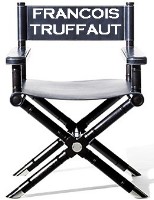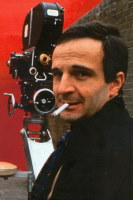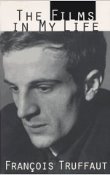 |
 |
François Truffaut was instrumental in establishing the French New Wave as one of the most important cinematic movements of the past century. Beginning as a critic for the Cahiers du Cinema, he quickly gained acclaim through his first feature film, Les Quatre cents coups, which was hailed as a masterpiece. Through out his career, Truffaut explored his fascination with the thematic core first exposed in his initial films: the loneliness of human existence and the necessity of communication. Truffaut often portrayed characters whose social awkwardness, timidity and naivety determined their actions, turned crystallized passions to obsessions and prevented satisfactory resolutions. His films exhibit his mastery of the medium: dispassionate voice-overs to embody the characters' confusion; awkward dialogue and monologues to replace an inability to express feelings; abrupt cuts and rapid camera motion for a climax; varying color palettes etc. Truffaut left behind him a body of work infused with his fluid style, a sense of melancholy and a yearning for something more. |
|
|
||
|
Suggested Reading (click cover or title for more info)
The Films in My Life |
Director - Selected filmography and DVDBeaver links Confidentially Yours (1983), The Woman Next Door (1981), The Last Metro (1980), Love on the Run (1979), The Green Room (1978), The Man Who Loved Women (1977), Small Change (1976), The Story of Adele H (1975), Day for Night (1973), Such a Gorgeous Kid Like Me (1972), Two English Girls (1971), Bed and Board (1970), The Wild Child (1970), Mississippi Mermaid (1969), Stolen Kisses (1968), The Bride Wore Black (1968), Fahrenheit 451 (1966), The Soft Skin (1964), Antoine et Colette (1962), Jules et Jim (1962), A Story of Water (1961), Shoot the Piano Player (1960), The 400 Blows (1959), Les Mistons (1958) |
|
